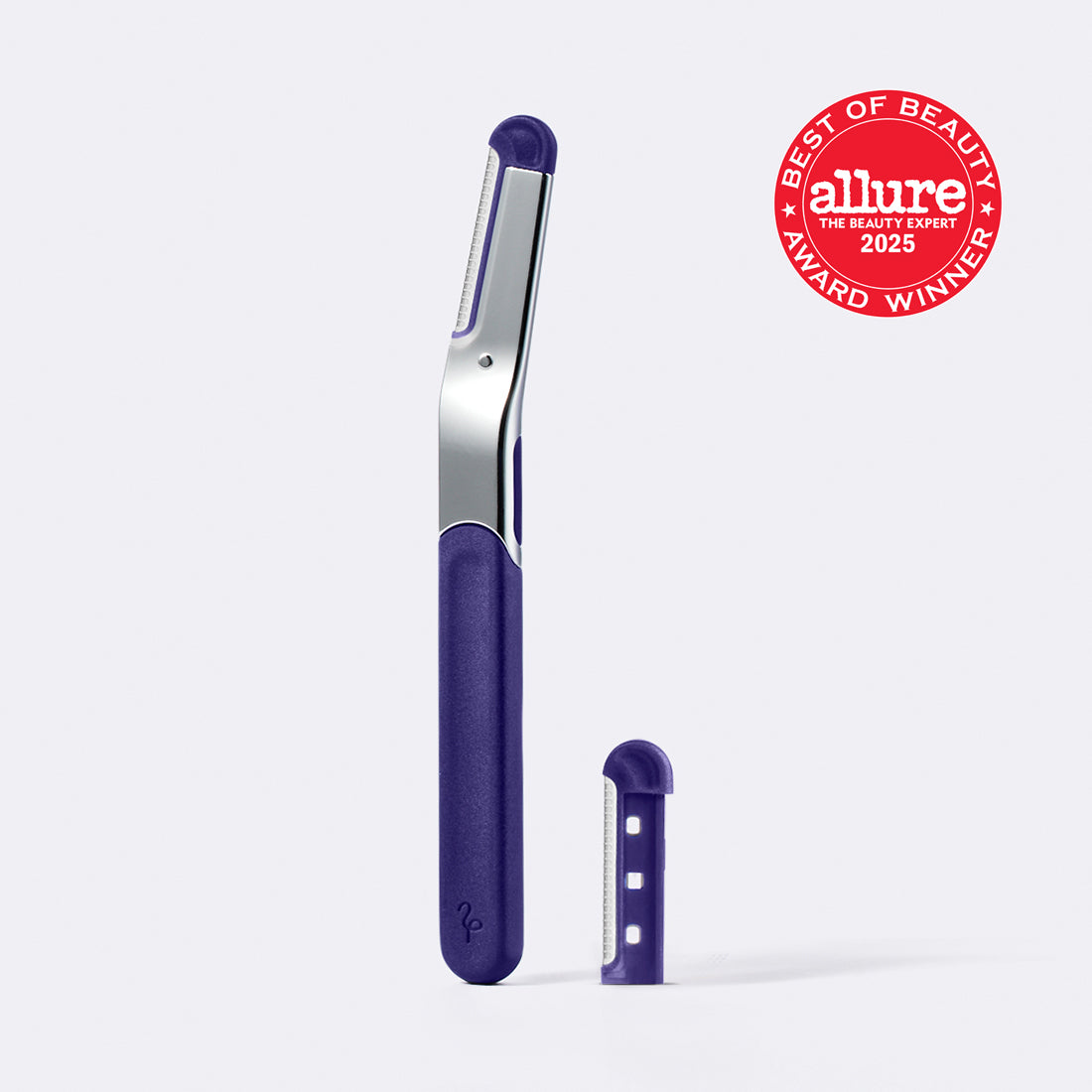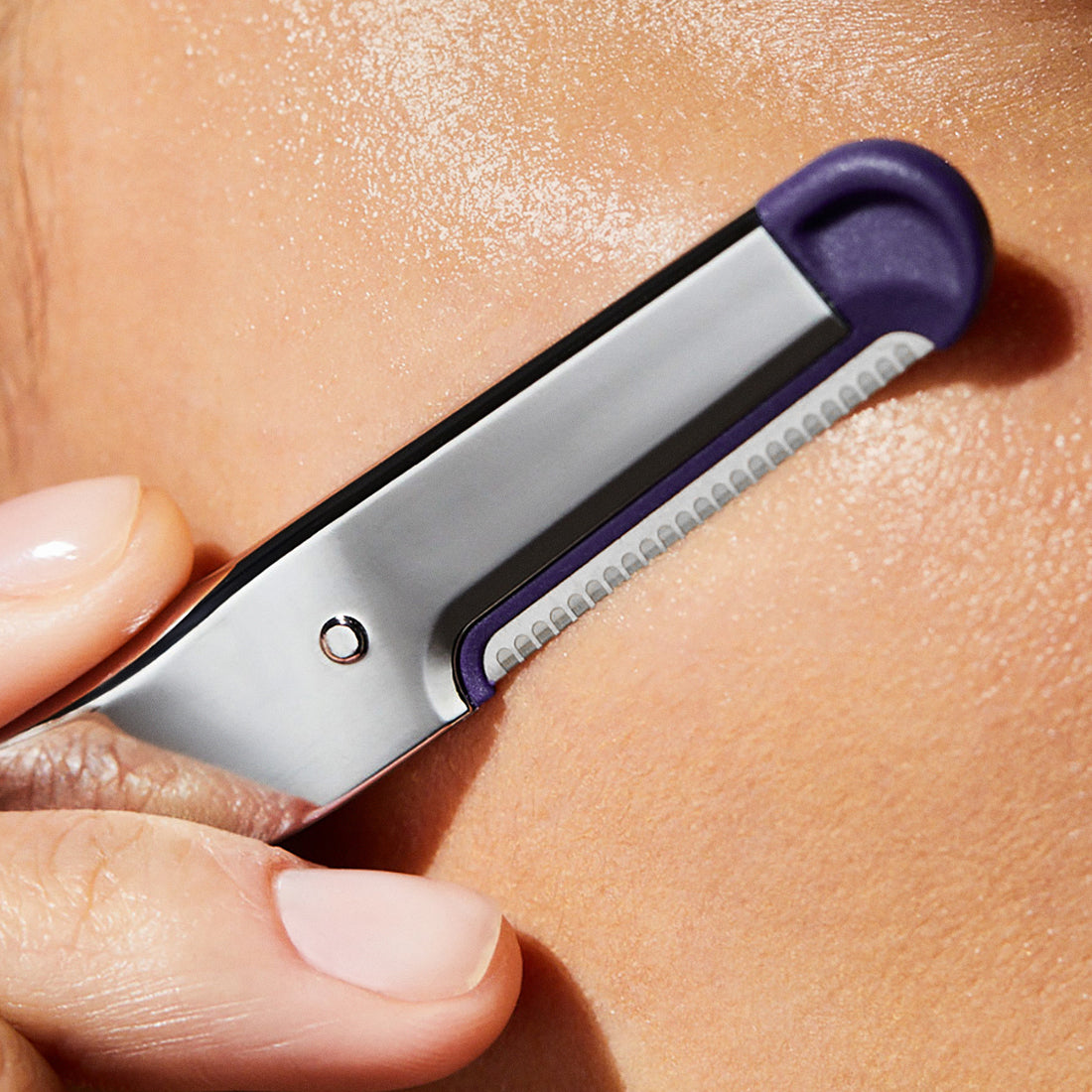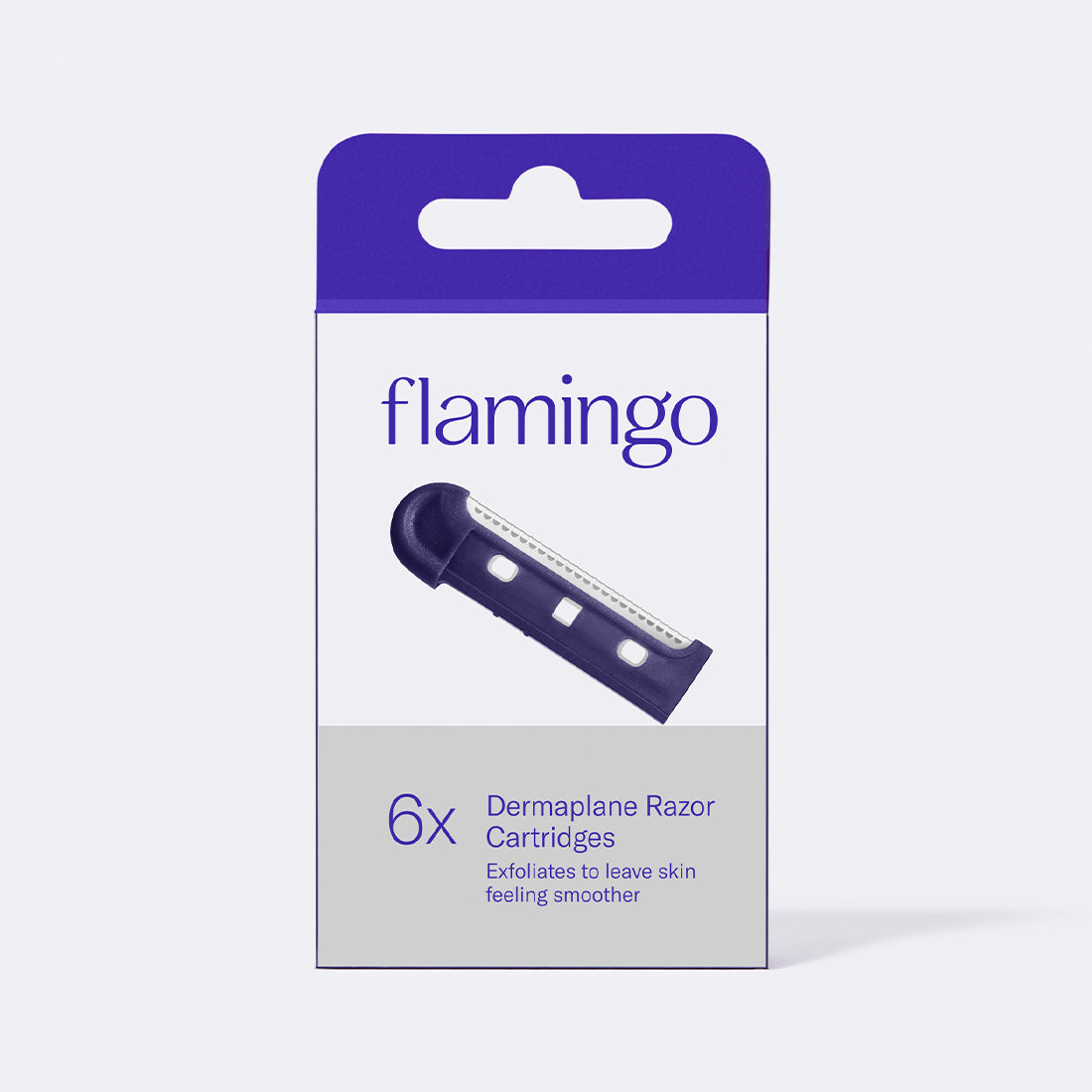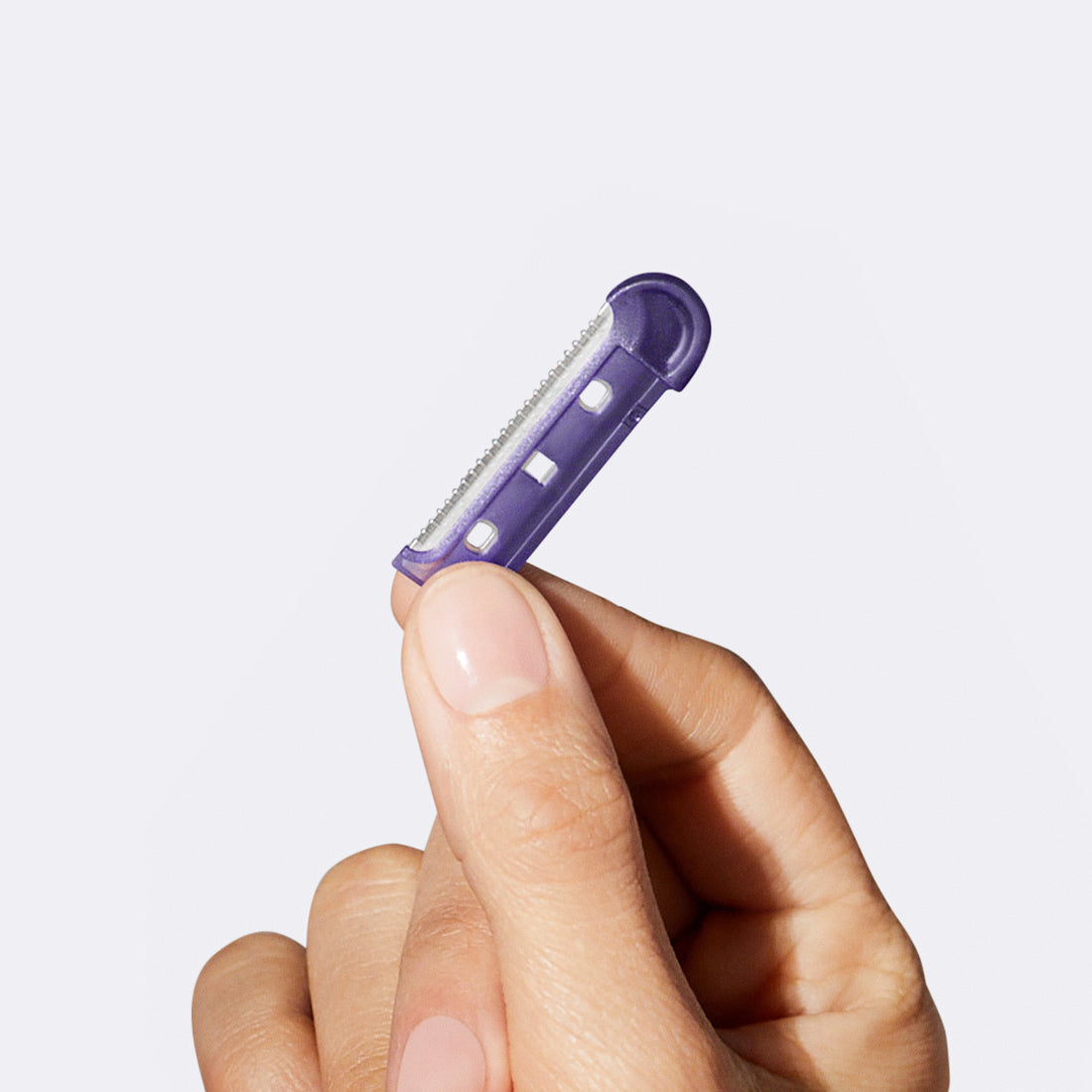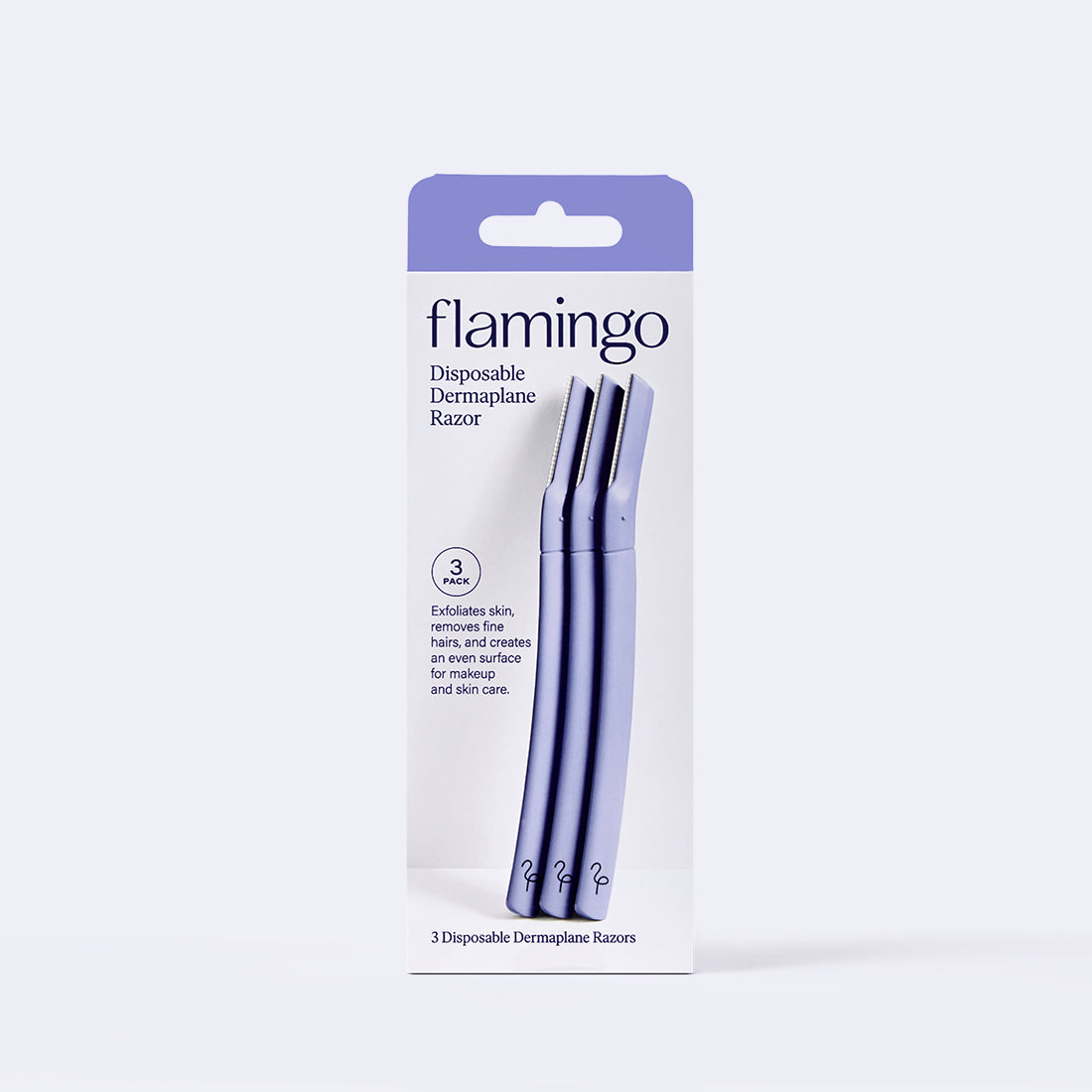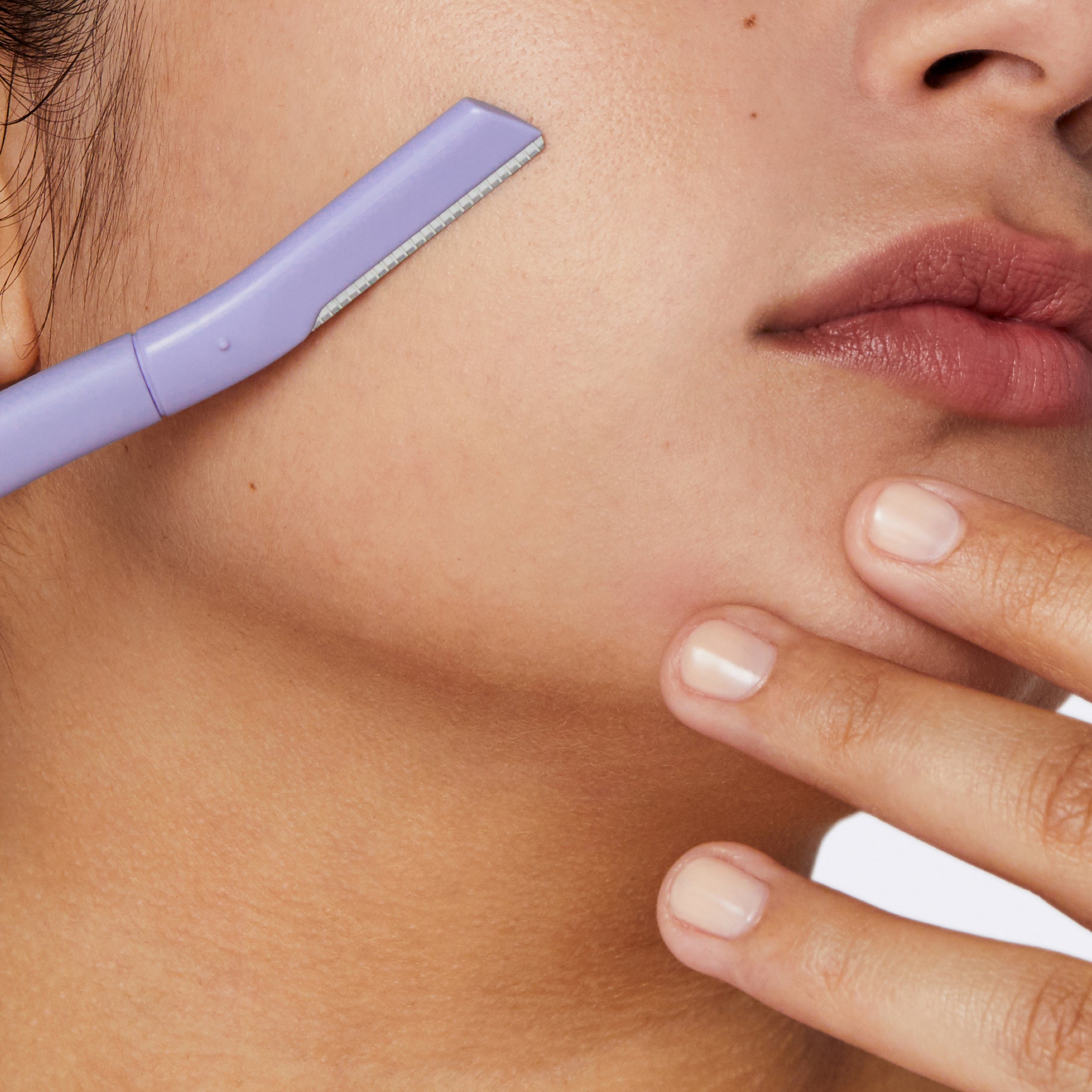Will My Hair Grow Back Thicker & Darker?!
SO, YOU'RE INTERESTED in trying dermaplaning but you’re freaked out that it’s going to make you grow facial hair that’s thicker and even darker, right? Because what else would be holding you back from getting the smoothest, hair-free skin? And look, I get how you might have landed on the conclusion that if you “shave” your face you’re all the sudden going to have a beard. Why? Because we see men shave their stubbly faces and it grows back dark and thick (which it’s both dark and thick to begin with because a man’s hair is different to begin with due to their genetic makeup — you know this though). Which leads me to my point: your hair removal math isn’t mathing — it’s simply a myth.
How do I know that to be true? I’ve been “shaving” my face with a dermaplane razor for years, and you don’t see me with a beard, right? In fact, I’ve spoken with so many of my dermatologist friends on this subject because it’s a question that is always in my DMs: “But is my facial hair going to grow back thicker and darker?!” and the answer is always no. I was recently emailing with Dr. Bhanusali, a cosmetic dermatologist in NYC (he is a genius, went to med school when he was 17, and is the mastermind behind so many products we all love, like the Rhode line with ailey Bieber). I asked him the same question: When you dermaplane, your hair absolutely will not grow back thick and dark, correct? His response: “Correct, that’s a myth I think dermaplaning once a week is one of the best hacks for people — it acts as a gentle exfoliation, taking the hair off at your skin’s surface, allowing for better penetration of the active ingredients in your skincare.”

THEN I WENT A STEP FURTHER and inquired about the tiny black hairs you might see pop up on your chin or jawline because if you’re getting them, you’re like, what gives? “It’s not abnormal to get some over time due to normal hormonal fluctuations,” he said. “But, if darker hair growth becomes significant, then we usually refer to an endocrine specialist to do a work up and make sure all of your levels are within normal ranges.” So, you can rest assured that even if you do have a darker hair pop up, it has zero to do with dermaplaning.
Speaking of zero, let me let you in on how I use my dermaplane razor as my “step zero” when I get ready. Basically, every two weeks, I’ll dermaplane my face after cleansing it and patting it dry. I love doing this step before applying my skincare because it gently sloughs off any dead skin cells that might be piling up on my face and preventing the actives in my skincare from reaching deeply into my skin. It also simultaneously planes off the hair at the skin’s surface level (as I mentioned earlier), taking away all of the vellus hair (or peach fuzz as it’s commonly referred to), leaving you with a smooth canvas to paint (with makeup) however you like.
Still afraid to give it a go? Didn’t think so.
Happy dermaplaning!
xo,
Carly
 |
Carly is the former Beauty Director at Cosmopolitan magazine. Her work has graced the pages of numerous publications with features in Byrdie, Elle, Harper's Bazaar, Into the Gloss, and Coveteur to name a few. Currently she thrives as a beauty expert content creator consultant and freelance beauty writer lending her talents to various publications. |


